Reading Peach Blossom Spring, at a time when global displacement is again dominating the news, made its themes even more powerful.
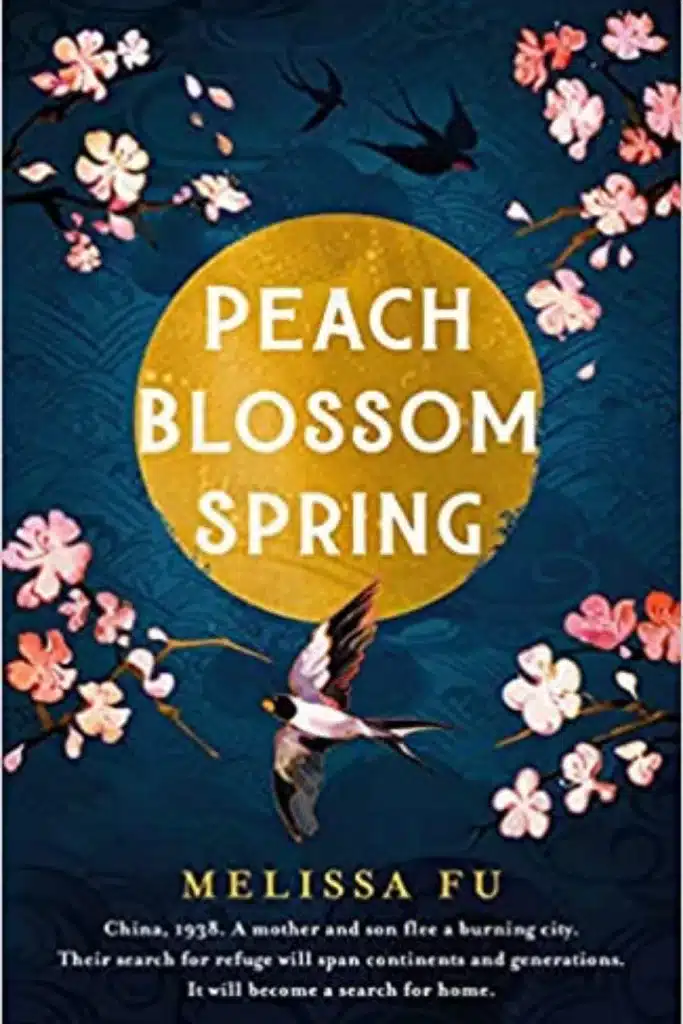
by Melissa Fu
Book cover
| Title | Peach Blossom Spring |
| Writer | Melissa Fu |
| Series | Standalone |
| Publisher | Wildfire |
| Publication date | 17th March 2022 |
| MBR star rating /5 | ⭐⭐⭐⭐ |
| Genre | Historical Fiction Literary Fiction |
fact sheet
I received an advance review copy for free, and I am leaving this review voluntarily.
Tags
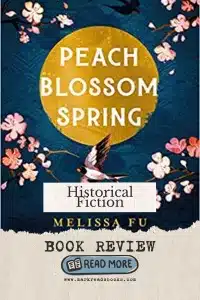
Review
Pinterest pin
Synopsis: Peach Blossom Spring
A sweeping, multigenerational story of survival, migration, and the search for belonging.
In 1938 China, Meilin’s life is torn apart when the Japanese army advances. With her young son, Renshu, she flees across a ravaged country.
Carrying only her resilience and a precious hand scroll of ancient fables that offers comfort and wisdom.
Years later, Renshu has reinvented himself as Henry Dao in America. Determined to protect his family from the shadows of his past.
Refusing to speak of his childhood, even as his daughter Lily longs to understand her heritage. Their silence raises a question that spans generations: how can we know who we are if we cannot face where we came from?
Peach Blossom Spring explores the enduring strength of family, the sacrifices made for survival, and the hope for a better future. At its heart, it asks what it truly means to be home.
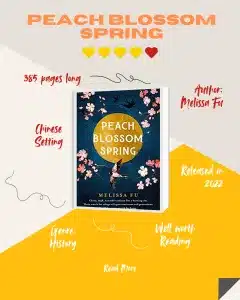
Review
Instagram post
Review: Peach Blossom Spring
In Peach Blossom Spring, Melissa Fu tells a sweeping, multigenerational story about how families are moved around like leaves on the wind by events far beyond their control.
The novel is about on Meilin and her young son, Renshu who whne the story start live in vhina in the year 1938.
At first, their lives seem stable and full of promise. But after Meilin’s husband is killed in the Japanese invasion, she and Renshu are forced to flee.
The next part of the story follows their journey across countries and continents, as mother and son struggle to find safety and rebuild their lives.
This is not just a historical novel about one Chinese family; it is a story that resonates universally. Fu captures the dislocation, resilience, and generational impact of displacement, making readers reflect on how history shapes not only individuals but future generations across time.
The novel’s strongest section comes when Renshu emigrates to America. Here, he is torn between two worlds: the pressures of adapting to American culture and the pull of his Chinese heritage.
This builds an inner conflict which feels especially poignant given the political tensions of the country he left behind.
Why Read?
Reading Peach Blossom Spring, at a time when global displacement is again dominating the news, made its themes even more powerful.
Fu’s writing style is evocative yet accessible, drawing the reader into the characters’ experiences and helping us understand what it means to live between cultures.
Conclusion
Peach Blossom Spring is an excellent novel, that is both thoughtful, and beautifully written.
Not only does it open a window into a lesser-known part of history (for a westerner at least) but also gives readers an insight into the lasting effects of displacement and migration on future generations.
A deeply human story, it is well worth reading.
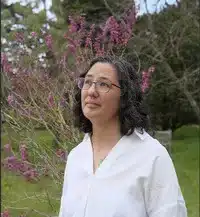
Further reading
on Mark Reads Books
External Links
add to TBR
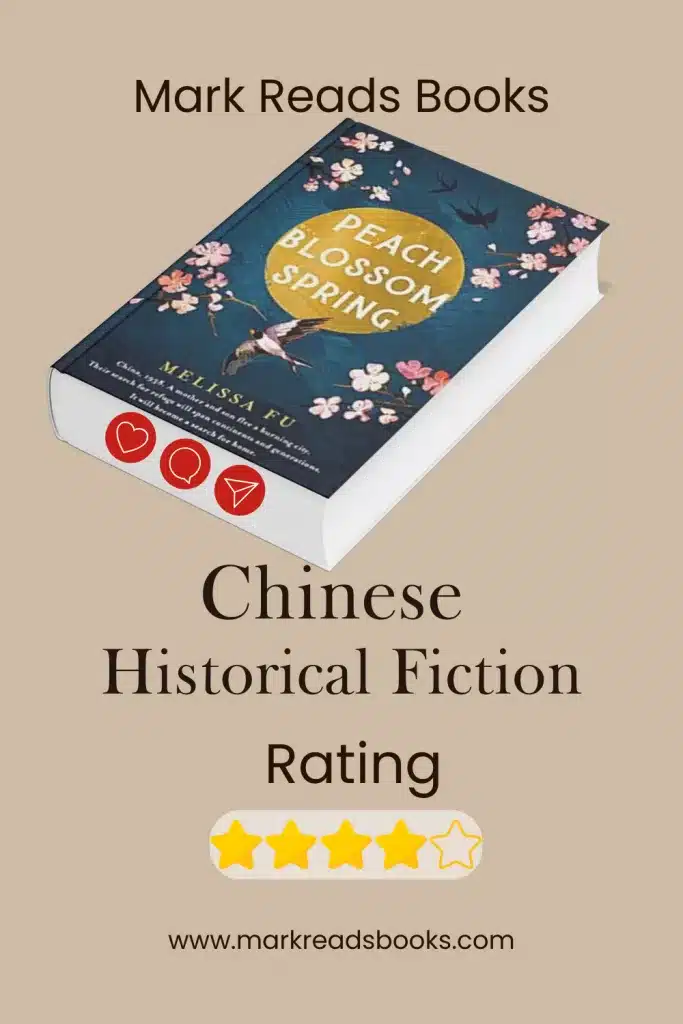
Review
Pinterest pin
Like follow or share if you would want similar content.
Above all Keep Safe and treat people fairly.
Mark.